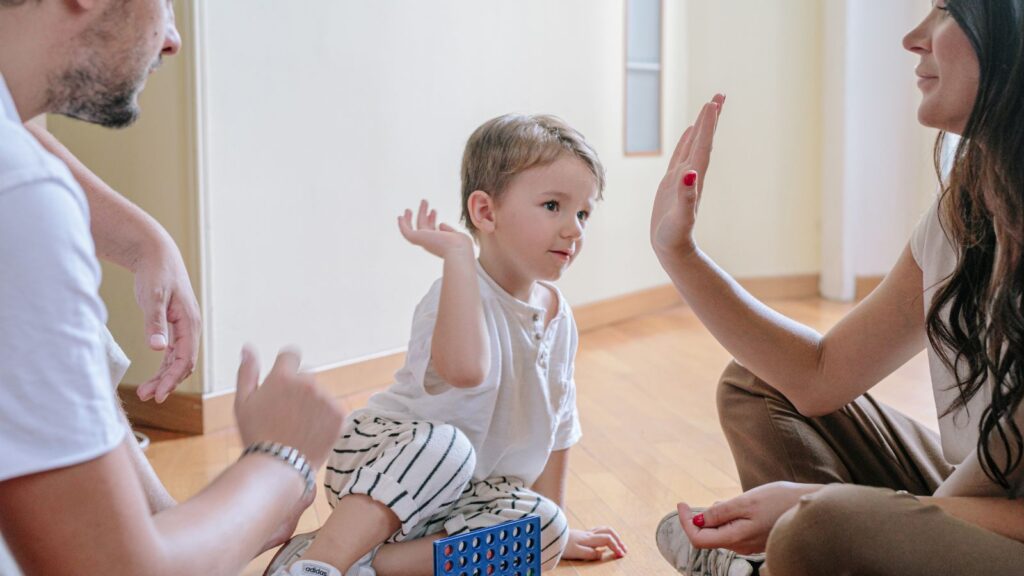Navigating the rough seas of parenting post-divorce or separation isn’t a walk in the park. It’s where co-parenting therapy steps in, acting as a beacon of guidance. This therapy aims to facilitate a positive environment for children, ensuring they’re the winners despite the split.
Co-parenting therapy isn’t about mending broken relationships, but about fostering a healthy co-parenting dynamic. It’s about learning to put aside personal differences for the sake of the child’s well-being.
Co Parenting Therapy
What Is Co-Parenting Therapy?
Co-parenting therapy, as the focus of this section, is a therapeutic approach taken by separated or divorced parents. It’s purpose is to foster a positive environment for children to thrive. Domestic disharmony often puts children in emotional distress, and this therapy targets mitigating such instances. A professional therapist guides parents, helping them communicate effectively and work out conflicts pertaining to raising their kids, even when they’re no longer together. This therapy doesn’t aim to mend the broken relationship between parents, rather focuses on establishing stable and healthy dynamics both parents can agree upon.
The objectives of co-parenting therapy are multidimensional. Notch up the well-being of the child, that’s the first and the pre-eminent target. The therapy seeks to eliminate negative impacts triggered by parental conflict on children’s emotional health. Parents learn to maintain respectful communication, keeping disagreement from the children. Establishing consistent routines and mutual expectations across both households is another major goal. Moreover, the therapy aims to help parents manage their emotions, so they can separate parental responsibilities from their personal grievances. In essence, it’s about creating a harmonious life for children post parental separation.
Common Challenges in Co-Parenting
Enhancing the well-being of a child post-divorce forms the crux of co-parenting therapy. However, the process is laden with insurmountable challenges. Under this h2 heading, three significant issues will be evaluated; Communication Issues, Disagreements on Parenting Styles, and Dealing with Past Conflicts.
Falling into the first bracket of concerns, communication issues serve as a major hurdle in co-parenting therapy. Parents may find it difficult to discuss topics about their children. Inability to keep personal emotions in check during conversational exchanges forms another barrier. Modern technologies like emails, text messages, and various parenting apps alleviate this problem to some extent but cannot entirely eliminate it. Still, proper management of communication issues becomes essential for reaching the therapy’s broader objectives.
Disagreements on Parenting Styles
Following closely is the issue of conflicting parenting styles. Every parent operates on unique principles and values, often leading to disagreements on parenting methods. Such differences can intensify, escalating into heated arguments about the child’s upbringing. For example, one parent might incline towards a discipline-centric approach, while the other leans more on nurturing. Therefore, it’s vital to bridge the gap on this matter for the child’s best interests.
Methods and Techniques in Co-Parenting Therapy
Building on the essentials of co-parenting therapy, exploring its techniques and principles offers insights into its practical applications. This section delves into varied approaches used in therapy, focusing on conflict resolution techniques, and the formation of structured co-parenting plans and agreements.
Co-parenting therapy draws heavily on conflict resolution techniques, crucial for managing disagreements that may arise between parents. Active listening is a key component of this, where parents are encouraged to attentively hear out each other’s opinions and feelings rather than assume intentions based on past interactions.
Mediation is another technique in which a neutral third-party mediator assists parents in reaching agreements concerning parenting responsibilities and other related matters. The mediator helps them find common ground and formulates a conflict resolution process that suits their particular circumstances.
Negotiation is used to encourage common agreement, it motivates parents to fairly and openly discuss their concerns, hopes, and limitations in relation to the child’s upbringing. Transitioning from adversarial interaction to collaboration, negotiation allows for respect, comprehension, and accommodation of each other’s perspectives.






